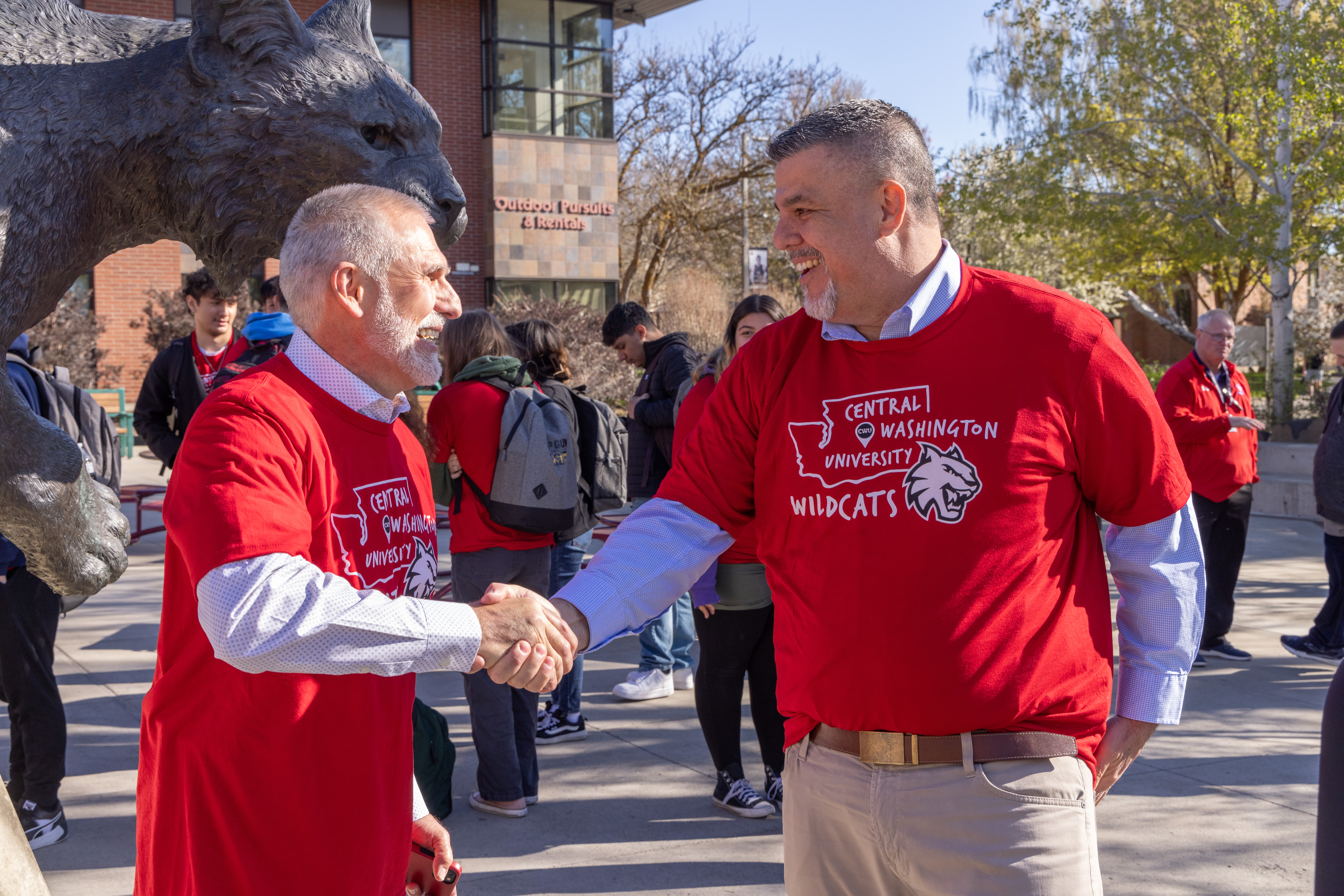
Career Services
Interviewing
Like all other important undertakings, the interview requires careful planning and preparation if it is to be successful.
Preparing for the Interview
The employer must be convinced that you are the best candidate for the position. You must be seen as likable, qualified, and competent. Attention to these things can improve your chances.
Know Yourself
- Make a list of your strengths. Be honest rather than modest. Talk to others about what they see as your strengths, asking them to be honest not flattering.
- Identify your weaknesses. Ask yourself what employers may want in their employees that you may not be very good at …. Yet. Be able to address those "weaknesses" in ways that will still make the employer want to hire you. Employers like people who know where they need training or further learning, and that you want to learn more and do a good job.
- Know the value of your background and experiences. If you have never had a "real" job before, reflect on what you have been doing with your time. Are you active in your church or extracurricular activities? Sports, paper route, babysitting, housekeeping, yard work, farm work, etc. all count toward validating that you would be a good employee.
- Know your needs. Be prepared to tell the employer when you are able to work. The fewer restrictions you have on your availability to work, the better, but do make sure to let the employer know about any true, specific needs ahead of time. Ask for special considerations only when absolutely necessary.
Research the Employer
Going into an interview, you should know as much about an employer as possible (e.g. the employer's products or service, the kinds of customers they serve, the persons in responsible positions, philosophy on customer service, etc.). If you research by asking those who work there now, you can also find out if it is a nice work environment where people help each other out with a smile rather than look for ways to make you look bad.
Practice
Practice interviews, also called mock interviews, can be very helpful and help get past all the stumbling that happens on first interviews. It helps you organize your thoughts and your responses to typical interview questions. Ask a good friend, a family member, or a teacher to act as an employer to ask you questions or book an appointment with Career Services for a mock interview.
Personal Appearance
Whether you are interviewing in person or virtually, your appearance makes up part of an employer's first (and often lasting) impression of you. Some believe that your outward appearance is an indication of your inward state of mind and that being unprofessionally dressed and not paying attention to personal hygiene shows a lack of good taste and an apathetic attitude. Check your hands and face, your hair and shoes. Be sure they are all clean.
Your posture also communicates your attitude about working and your interest in working for this employer. Practice and develop good posture, standing and sitting. Begin to develop poise. In the case of interviewing, poise is a way of standing, sitting, and, and making gestures that is appropriate and graceful.
Attitude
Perception of attitudes is difficult to identify specifically, but an interviewer will develop a judgment of your attitude through the entire interview experience. As mentioned above, your personal appearance will be the first clue the interview has of your attitude. Another important measure is your speech and vocabulary. Persons with a positive, energized attitude speak clearly and in an audible and respectful tone. This also expresses self-confidence, which may be challenged in the experience of a job interview. Expressing yourself in a tone that suggests you want this job, you are responsible, and you are sincere in wanting to be an asset and a productive, valuable employee will go far. Practice your vocabulary and your grammar. Poor vocabulary and grammar will not represent your employer well to their customers and may disqualify you.
Purpose of the Interview
While there are many purposes of an interview, the four key factors that you should consider in being prepared for a job interview are:
- Portray your qualifications.
- Demonstrate that you are intelligent, organized, articulate, and thoughtful.
- Give examples of your trustworthiness.
- Show that you are likeable.
Employers are looking for individuals who will work well with their other employees. Being likeable is an important characteristic. You owe the interviewer a positive attitude. You will be expected to be at your best.
Concluding the Interview
At the conclusion of an interview, you will usually be asked if you have any questions. A good interviewee will have questions, usually prepared ahead as part of the preparation for the interview.
If the questions you came with have been answered through the interview process, state that you had some, but they have been answered then share one or two of those questions, followed by what you believe to be the answers. The interviewer will usually provide additional information to more completely respond to the question.
If the interviewer does not explain to you what the next step in the selection process is, ask them when they will be making a decision or when you can expect to hear from them. Always thank the employer for the interview and the opportunity to discuss the possibility of employment with them, and follow-up with a written or emailed thank you note.
Helpful Handouts about Interviewing
Check out the documents linked below for more detailed information about interviewing. These documents have been prepared by Career Services staff. If you have any questions, please email our office.
- The Different Types of Job Interviews (MS WORD)
- Phases of an Interview (MS WORD)
- How to STAR in a Job Interview (MS WORD)
- Handling Illegal Questions (MS WORD)
- Tips on Informational Interviews (MS WORD)
- Tips to Prepare for Virtual Networking Events (MS WORD)
- Student Guide to Wildcat Career Network Mock Interviews (MS WORD)
- How to Approach a Job Interview (MS WORD)
CWU News

CWU Army ROTC to host nighttime Norwegian Foot March this Friday
May 1, 2024
by Rune Torgersen

Grant-funded Limitless network brings Yakima students to CWU
May 1, 2024
by Rune Torgersen